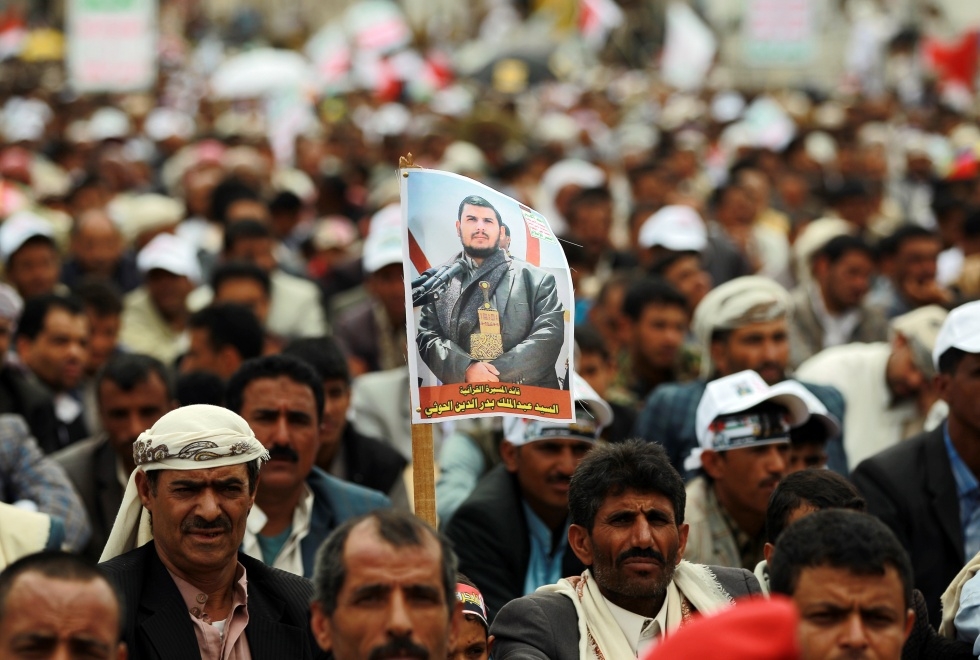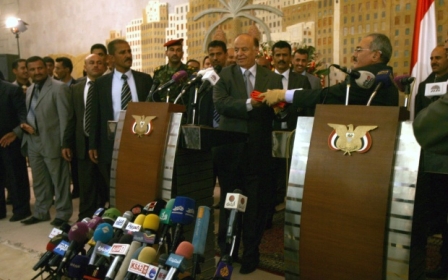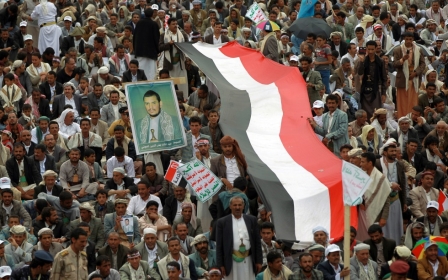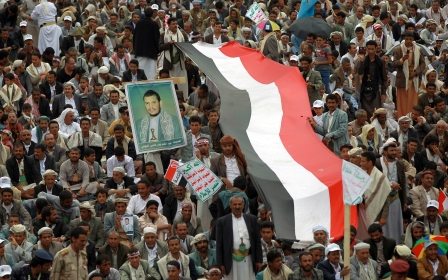US removes diplomats in Yemen as Houthi rebels cling to capital

The US government has ordered a cut in the number of American government staff in Yemen after Houthi rebels seized much of the capital city.
"We are taking this step out of an abundance of caution and in response to recent political developments and the changing, unpredictable security situation in Yemen," State Department spokeswoman Jen Psaki said.
Psaki said the US embassy would continue to operate with reduced personnel.
An updated US travel warning said the "security threat level in Yemen is extremely high," and urged all American citizens in the country to leave, warning the embassy may only be able to give them limited assistance if they get in trouble.
In 2012 hundreds of Yemeni demonstrators stormed the US embassy compound in Sana'a in protest at a film they consider blasphemous to Islam.
Civil War
Yemeni President Abd Rabu Mansur Hadi warned Tuesday of "civil war", vowing to restore state authority, as Shiite rebels cried victory over their lightening capture of much of the capital.
Following days of deadly clashes with army troops, Houthi militants this week managed to seize several state institutions in Sana'a, including the cabinet and parliament buildings and Defense Ministry headquarters.
On Sunday, Hadi – pressured by massive pro-Houthi demonstrations in Sana'a – signed a deal with the Houthi leadership aimed at ending the tension in and around the capital.
The deal calls for the formation of a new government within three days; the appointment of a nonpartisan prime minister; and the appointment of a Houthi adviser to the president.
However, Houthi militants, who have erected checkpoints on main streets throughout Sana'a, now appear to have tightened their grip on the capital while looting several army bases across the city.
Journalists targeted
Media watchdog Reporters Without Borders on Thursday accused Shiite Houthi rebels who have taken near-total control of the Yemeni capital of harassing journalists.
"A climate of terror has reigned in Sana'a ever since the rebels launched their offensive on 18 September, and the fighting with government forces is intensifying despite the ceasefire," said the rights group, known under its French acronym RSF.
The group expressed concern that the "Houthi rebels are deliberately targeting journalists and news media in the capital because of their work" and urged them "to respect the 21 September ceasefire and stop harassing media and media personnel".
"Concerned for their safety, many journalists have gone into hiding and are censoring themselves or adapting their reports for fear of reprisals," said RSF.
Drone strikes
A drone strike on a vehicle in southern Yemen Thursday killed four suspected members of Al-Qaeda, a security official said.
The drone struck near Nissab, west of the Shabwa provincial capital of Ataq, the official said, with a tribal source adding that the charred bodies of four men were seen inside the vehicle.
Al-Qaeda in the Arabian Peninsula (AQAP) has been linked to a number of failed terror plots against the United States. Washington operates drones over Yemen, but US officials rarely acknowledge the covert programme.
President Abdrabuh Mansur Hadi and the US government have defended the use of drones, saying they enable the targeting of militants without sending soldiers into lawless areas where the authorities have little or no control.
AQAP, considered by Washington as Al-Qaeda's most dangerous affiliate, is active across several parts of Yemen, taking advantage of a collapse of central authority during a 2011 uprising that ousted veteran president Ali Abdullah Saleh.
New MEE newsletter: Jerusalem Dispatch
Sign up to get the latest insights and analysis on Israel-Palestine, alongside Turkey Unpacked and other MEE newsletters
Middle East Eye delivers independent and unrivalled coverage and analysis of the Middle East, North Africa and beyond. To learn more about republishing this content and the associated fees, please fill out this form. More about MEE can be found here.




